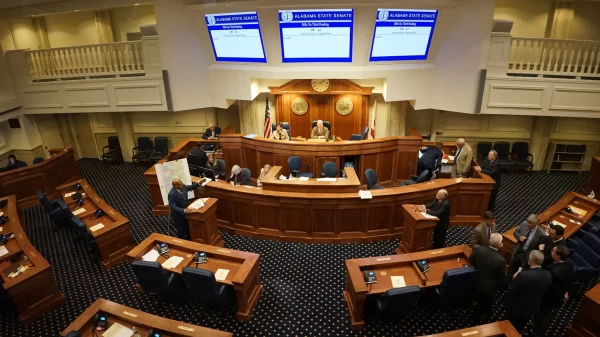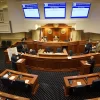Alabama citizens are currently guaranteed open access to public records, except, as anyone familiar with making open records requests in Alabama knows, many clerks ignore the requests or do everything possible to delay or impede access by the public, even from legitimate news organizations. Some cities routinely don’t respond at all unless the requesting publication brings a lawsuit. State Sen. Arthur Orr, R-Decatur, has introduced legislation reforming public information requests.
Senate Bill 165 would repeal existing law providing access to public records and replace it with a new Alabama Public Records Act with provisions establishing the rights of citizens to access public records, enumerating exceptions to disclosure, establishing procedures for making and responding to requests for access, setting the charges associated with responding to requests, establishing a Public Access Counselor within the Alabama Department of Examiners of Public Accounts, creating administrative and judicial remedies, establishing criminal penalties for intentional false statements made during a request for records or an appeal under this act, and establishing civil penalties for noncompliance.
Definitions are extremely important in legislation as that is what the courts will ultimately use to interpret disputes that arise under the law. This bill does protect “confidential business information” from the eyes of the public.
The act defines “confidential business information” as:
“Records containing any of the following: a. Trade secrets obtained from a person which are of a privileged or confidential nature and required by law to be submitted to a government agency. b. Data or information of a proprietary nature, produced or collected by a governmental body or private individual or private business, which would place the governmental body or private individual or private business at a competitive disadvantage, and which has not been publicly released, published, copyrighted, or patented. c. Data or information of a proprietary nature, produced or collected by or for faculty or staff of state institutions of higher learning, or other governmental bodies, in the conduct of or as a result of, study or research on commercial, scientific, technical, or scholarly issues, whether sponsored by the institution alone or in conjunction with a governmental body or private individual or private business, where the data, records, or information has not been publicly released, published, copyrighted, or patented.”
This bill also protects “personal privacy information.” Under this act that includes:
Social Security number, date of birth, weight, mother’s birth name, credit or debit card account numbers, personal e-mail addresses that are not provided or hosted by or at the expense of a governmental agency, unless those e-mail addresses are regularly used to conduct the business of a governmental agency or to transmit public records. Financial account numbers or data. Medical examinations, treatments, or diagnoses. Psychological examinations, treatments, or diagnoses. Names and dates of birth of children. Names and address of current or former spouse. Unlisted or unpublished home telephone or mobile numbers or street number of home addresses. Credit rating score. Any identifying information listed in Section 41-13-7, Code of Alabama 1975, as well as any information that is considered confidential information under any other applicable law.
There are a number of other exceptions in this law.
This act requires every government agency to appoint a custodian of records. A requestor of public records would have to apply to the custodian, who has the right to require the name of the requestor and that the request be in writing. The custodian has 14 calendar days to respond to a request.
At that time they may: Provide the requested records; provide a method for the requestor to access the requested records; make the source records available for search by the requestor; or deny access to the requested records because the release of the requested records is prohibited by this act or other applicable state or federal law.
The custodian may also petition the Public Access Counselor for more time to fulfill the request.
A custodian or governmental body shall not charge any fee for a requestor to view a public record. For the protection of original governmental records, custodians may provide copies of public records for review by persons at no charge or impose restrictions on the ability of persons to handle or damage original governmental records. Persons may not be prohibited from using their own equipment to photograph, electronically scan, or make copies of public records at their own expense unless those arrangements could reasonably be expected to cause damage to original governmental records or unreasonably disrupt the administration of the governmental agency. Custodians may provide copies of public records to requesters without charge, and shall do so when it is practicable.
The custodian may charge up to 20 cents per page for copies, but can not charge any additional fees above the actual cost of providing the records.
If the custodian does not respond to a record request as required under the law, the Public Access Counselor can order that government body to pay the requestor $100. Either the requestor or the custodian can appeal the decision of the Public Access Counselor in circuit court.
The burden of proof in civil actions brought under this act with regard to access to public records shall rest with the custodian or governmental body seeking to withhold or deny access to a requestor. SB165 has been assigned to the Senate Judiciary Committee.
















































